Matt Murphy, Olga Robinson & Shayan Sardarizadeh
BBC Verify

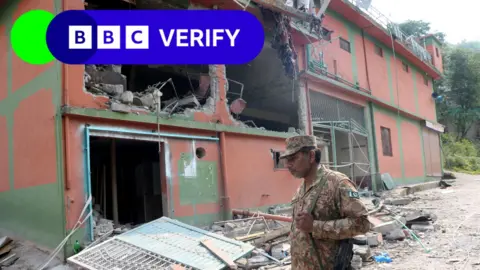 Reuters
Reuters
India's strikes on Pakistan and Pakistan-administered Kashmir have unleashed a wave of misinformation online, with unrelated videos purporting to be from the strikes gaining millions of views.
Dramatic clips debunked by BBC Verify have claimed to show attacks on an Indian army base and an Indian fighter jet shot down in Pakistan.
One video, which had more than 400,000 views on X at the time of writing, claiming to show an explosion caused by a Pakistani response was actually from the 2020 Beirut Port explosion in Lebanon.
An expert told BBC Verify that in moments of heightened tension or dramatic events, misinformation is more likely to spread and fuel distrust and hostility.
"It's very common to see recycled footage during any significant event, not just conflict," Eliot Higgins, the founder of the Bellingcat investigations website, said.
"Algorithmic engagement rewards people who post engaging content, not truthful content, and footage of conflict and disasters is particularly engaging, no matter the truth behind it."
One of the most viral clips, which gained over 3 million views on X in a matter of hours, claimed to show blasts caused by the Indian strikes on Pakistan-administered Kashmir. A search for screengrabs from the video on Google found the footage actually showed Israeli strikes on the Gaza Strip on 13 October 2023.
- Follow live: Tensions escalate as Pakistan vows response to Indian strikes
- What we know about India's strike on Pakistan and Pakistan-administered Kashmir
- Why India and Pakistan fight over Kashmir
While much of the debunked footage has purported to show the immediate aftermath of the Indian strikes, some clips analysed by BBC Verify appeared to be trying to portray the Pakistani response as being more severe than it actually was.
One video, which has racked up almost 600,000 views on X, claimed to show that the "Pakistan army blew up the Indian Brigade headquarters". The clip, which shows blasts in the darkness, is actually from an unrelated video circulating on YouTube as early as last month.

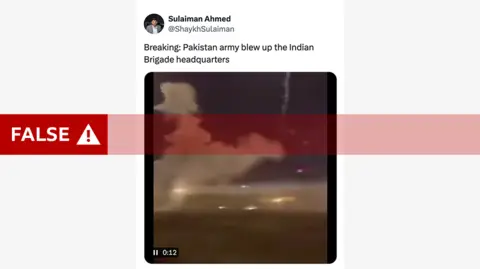 X/Sulaiman Ahmed
X/Sulaiman Ahmed
Elsewhere, one set of photos purported to show an operation carried out by the Pakistan Air Force targeting "Indian forward air-bases in the early hours of 6 May 2025". The images - which appeared to be captured by a drone - were actually screengrabs taken from the video game Battlefield 3.
The Pakistani military says it destroyed five jets on Wednesday morning local time. That announcement has led to some users sharing unrelated clips which they claimed showed the wreckage of Indian fighter jets. Some of these videos have obtained millions of views.
But two widely shared images actually showed previous Indian air force jet crashes - one from an incident in Rajasthan in 2024 and another in the Punjab state in 2021. Both crashes were widely reported.

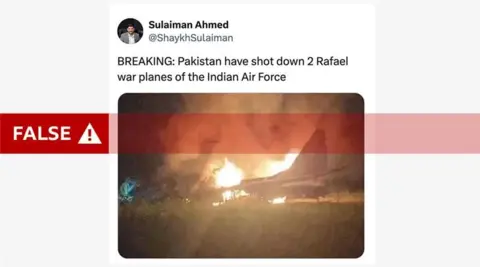 X/Sulaiman Ahmed
X/Sulaiman Ahmed
Prof Indrajit Roy of York University said that the images "are being generated with a view to get support for the military in Pakistan". One clip circulated by the Pakistani military itself was later withdrawn by news agencies after it turned out to be from an unrelated event.
"We have jingoists on both sides of the border, and they have a huge platform on Twitter (X). You can see how fake news, as well as some real news, gets amplified, distorted and presented in ways designed to generate hostility, animosity and hatred for the other side."
The conflict in Kashmir has long attracted a high degree of misinformation online. In the aftermath of the deadly militant attack on Indian tourists in Pahalgam last month, AI images circulated - with some seeking to dramatise actual scenes from the attack.
Vedika Bahl, a journalist with France 24, said the Pahalgam attacks had prompted a sharp "uptake in misinformation from both sides surrounding the conflict".
"Lots of this misinformation begins on X," she said. "Eventually this trickles down over time from X to WhatsApp which is the communication tool which is most used in South Asian communities."




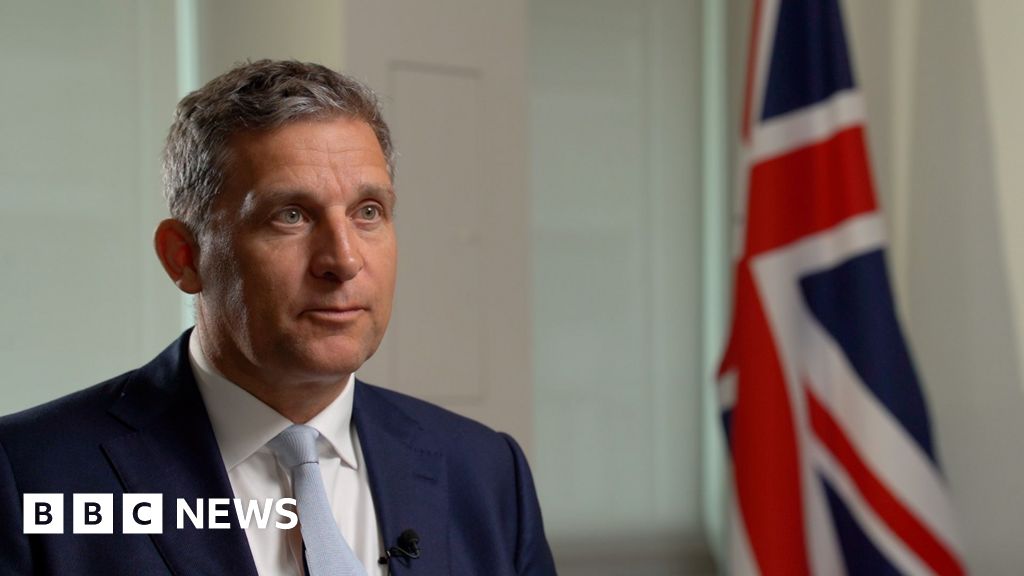
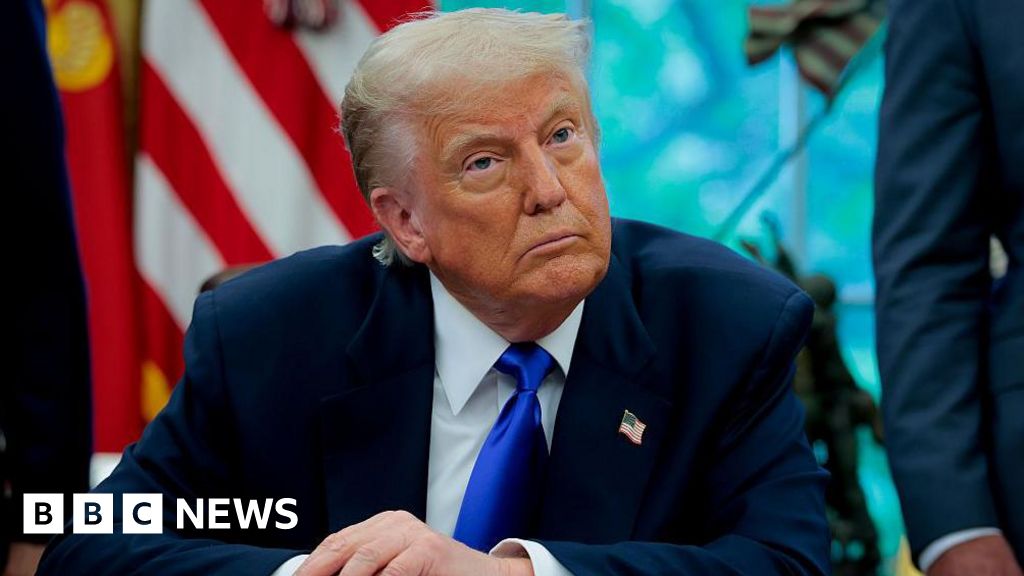


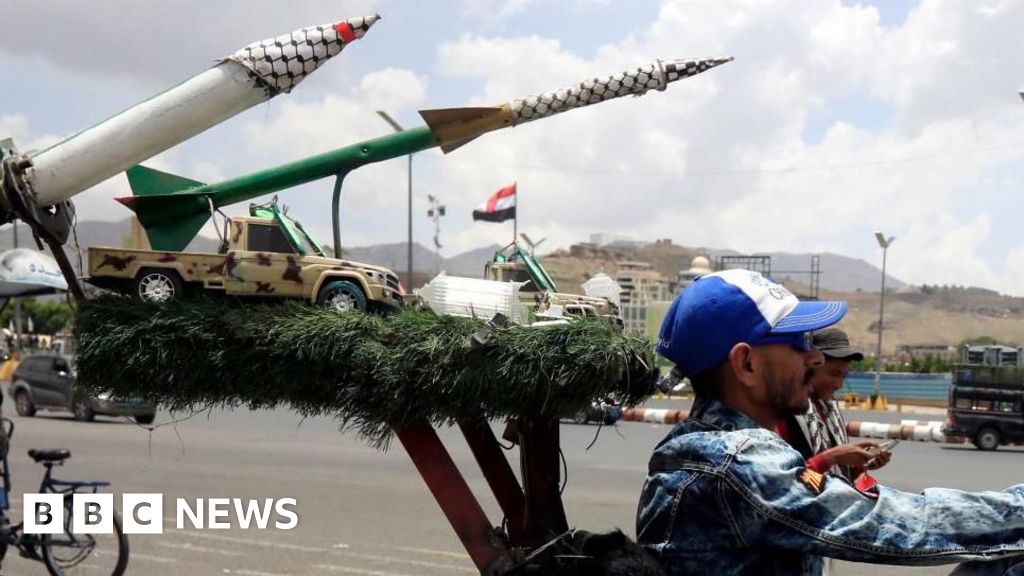
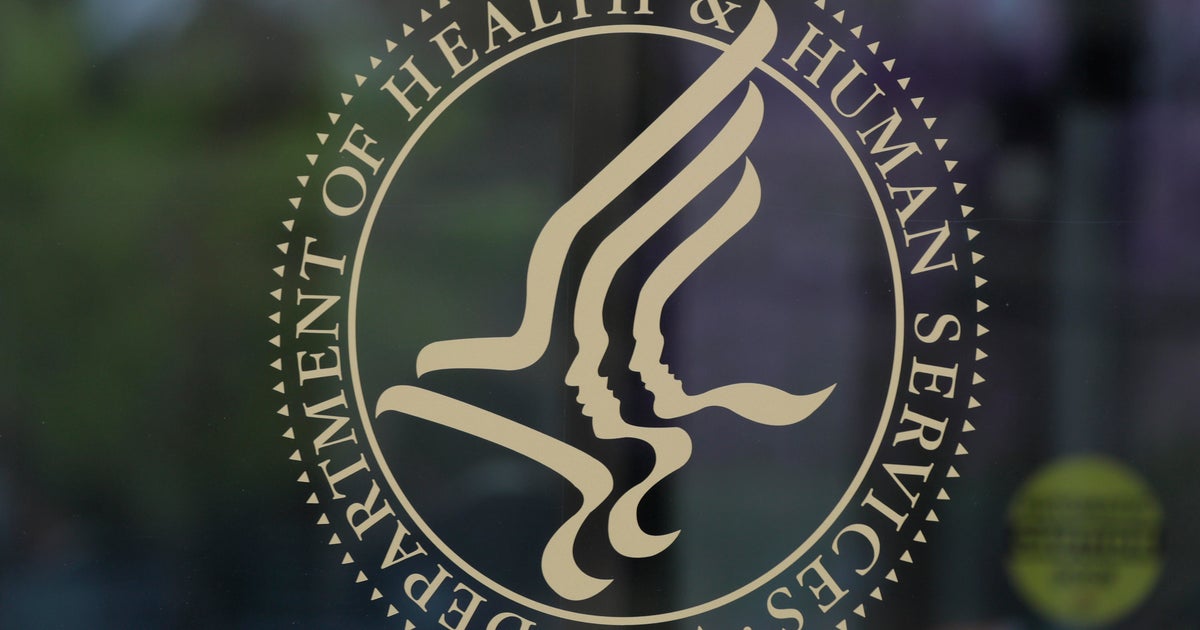
 English (US) ·
English (US) ·